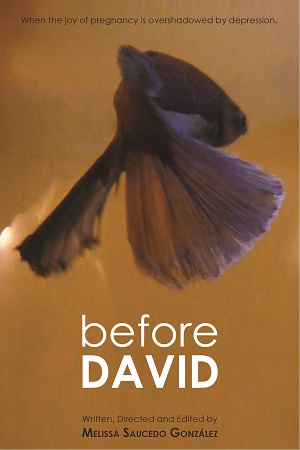
Before David 2015
Distributed by Third World Newsreel, 545 Eighth Avenue, Suite 550, New York, NY 10018; 212-947-9277
Produced by Melissa Saucedo Gonzalez
Directed by Melissa Saucedo Gonzalez
Streaming, 20 mins
General Adult
Childbirth; Depression; Mental Health; Women’s Health
Date Entered: 06/04/2021
Reviewed by Irina Stanishevskaya, University of Alabama at Birmingham LibrariesThe prenatal (or perinatal) depression is a disorder, which affects women’s mental health and impacts well-being during pregnancy. In addition, the disorder may have adverse effects on fetus development. Very often, such depression goes unrecognized and untreated. To bring attention to this serious problem, the documentary follows a pregnant woman who experiences mental changes during her pregnancy.
In the beginning of the documentary, the audience meets a happy couple. They share their memories about how they first met and discovered about pregnancy later. During the pregnancy, the heroine goes through the mental transformation. She could not understand what is going on with her underlying biological processes and their effects on her emotional state. Her perceptions and expectations of being pregnant differ from the reality. Her mood changes and she feels lost, confused, motionless, and even experiences thoughts of jumping from a bridge. The heroine quits her job and stops going out. In addition, she does not feel any connection with the fetus and is afraid that she will not be a good mother. Throughout the documentary, the woman has several conversations with her partner, mom, and friend about her negative feelings. However, nobody seems to take the problem seriously and does not advise to seek a professional help.
The documentary puts the spotlight on a prenatal depression as a serious problem, which needs to be recognized, properly approached, and treated. The filmmakers created a very important message: “You are not alone. Seek help. Speak out.” However, at the end of the documentary, they only provide the information about three organizations that can inform and help with the disorder. While the information about those organizations is vital, they do not explore many other important resources.
The narration of the documentary is in the Spanish language with English subtitles. It is appropriate for public and academic library collections.
Awards:
James Aronson Award for Social Justice Journalism, Short Documentary, 2016
Published and licensed under the Creative Commons Attribution 4.0 license. Anyone can use these reviews, so long as they comply with the terms of the license.